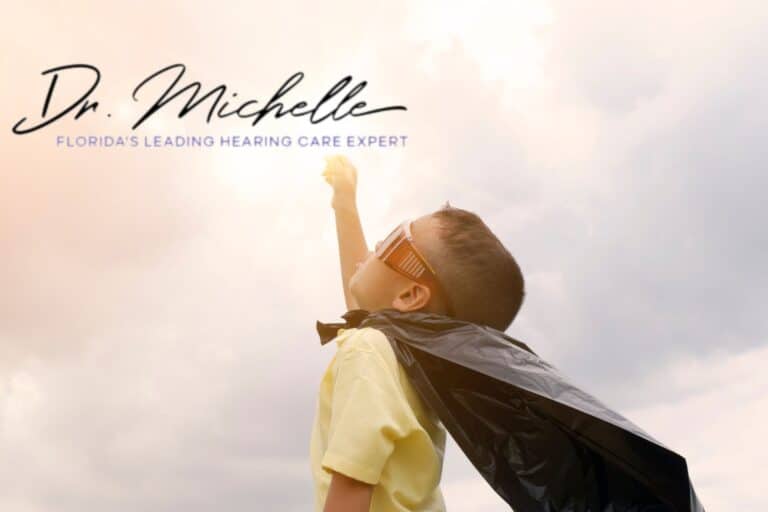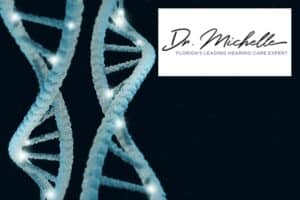When it comes to our children’s health, we want to ensure that we are doing everything in our power to set them up for success. While we often focus on their physical well-being and intellectual development, we must not overlook the crucial role that hearing plays in their overall growth. Did you know that an estimated 2 to 3 out of every 1,000 children are born with hearing loss? This statistic highlights the importance of early detection and treatment for hearing loss in children. In this blog post, we will explore the various aspects of childhood hearing loss, the benefits of early detection, common signs and symptoms to look out for, the role of audiologists and hearing care professionals, and tips for parents and caregivers.
Understanding Childhood Hearing Loss
Hearing loss in children can occur in various forms, including conductive, sensorineural, and mixed hearing loss. Conductive hearing loss happens when the sound is unable to reach the inner ear, sensorineural hearing loss is caused by damage to the inner ear or auditory nerve, and mixed hearing loss is a combination of the two. There are several factors that can contribute to childhood hearing loss, including genetics, premature birth, certain infections, exposure to loud noises, and certain medical conditions. It is important to understand that untreated hearing loss in children can have a significant impact on their development and overall quality of life. Without proper intervention, children with hearing loss may face delays in speech and language development, social isolation, academic setbacks, and emotional struggles.
The Benefits of Early Detection
Early screening and diagnosis for hearing loss in children are essential. By identifying hearing loss at an early age, parents and healthcare professionals can take necessary steps to address the issue promptly. Early intervention and treatment can have a profound impact on a child’s language, communication, and cognitive skills. Research has shown that children who receive appropriate interventions for hearing loss early on often experience improved speech and language development, perform better academically, and have enhanced social skills. Early detection not only improves the outcomes for the child but also provides an opportunity for parents to better understand and support their child’s specific needs.
Common Signs and Symptoms of Hearing Loss in Children
As parents and caregivers, it is important to be aware of the signs and symptoms that may indicate hearing loss in children. Some common indicators include a lack of response to sounds, speech delays, difficulty following instructions, frequently asking for repetition, speaking loudly or softly, watching others for cues in social situations, and showing frustration or withdrawal due to communication difficulties. It is crucial to observe and communicate with healthcare professionals if there are any concerns about a child’s hearing. In addition, there are resources and tools available for parents to monitor their child’s hearing development at home, such as online hearing screenings and developmental checklists.
The Role of Audiologists and Hearing Care Professionals
When it comes to diagnosing and treating childhood hearing loss, audiologists and hearing care professionals play a critical role. These experts are highly trained in assessing and managing hearing-related issues in children. They utilize specialized diagnostic tests and evaluations to determine the presence and extent of hearing loss. These tests may include a pure-tone audiometry, speech audiometry, and impedance testing. Based on the results, appropriate treatment options can be explored, such as hearing aids, cochlear implants, and auditory rehabilitation. Audiologists also provide ongoing support and counseling to parents, guiding them through the journey of helping their child navigate the world of sound.
Tips for Parents and Caregivers
If your child has been diagnosed with hearing loss, there are several steps you can take to support them on their hearing journey. Firstly, make sure to follow the recommended treatment plan, which may involve the use of hearing aids or other assistive devices. It is essential to keep an open line of communication with your child’s audiologist and other professionals involved in their care. Creating a supportive and inclusive environment at home and in school is also crucial. Educate family members, teachers, and classmates about hearing loss and the best practices for effective communication. Additionally, seek out resources and support groups that specialize in childhood hearing loss. These communities offer valuable knowledge, advice, and emotional support to parents going through similar experiences.
Early detection and treatment for hearing loss in children are crucial for their overall development and well-being. By being vigilant about the signs and symptoms, seeking professional help, and providing the necessary support, we can give our children the best chance to reach their full potential. Remember, if you suspect that your child may have hearing loss, do not hesitate to consult with an audiologist or hearing care professional. Together, we can ensure that every child has an equal opportunity to experience and enjoy the wonderful world of sound.



